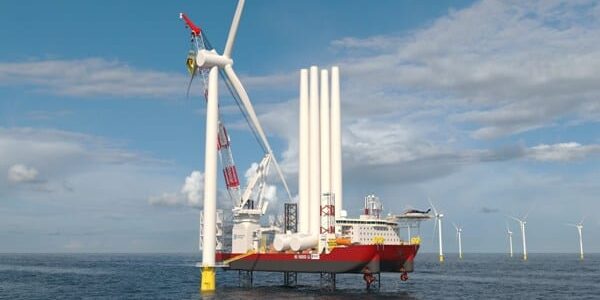CHARLESTON, W.Va. — A bill that would remove tax subsidies for wind power projects has stalled in the legislature and is not likely to begin moving again before the end of the session on April 12. Senate Bill 439, sponsored by chairman of the Senate Energy, Industry, and Mining Committee, Chris Rose, R, Monongalia, 2, would remove tax preferences for wind projects that are currently taxed at salvage value.
On WAJR’s “Talk of the Town,” state treasurer Larry Pack explained wind projects are considered pollution control facilities and taxed no greater than 79 percent of their total value. Current law dictates the tax value to be determined by the tax commissioner.
“For their personal property taxes, instead of being taxed at the actual value of the windmills, they are taxed at zero,” Pack said. “So their property tax bill going to the counties will be almost zero.”
Pack said the law was passed when windmills were introduced in the eastern panhandle area of the state. Wind power is preferred by some companies looking to expand and bring good-paying jobs. Many of those companies subscribe to Environmental, Social, and Governance (ESG) principles that have been rejected by state government.
“The local hardware store guy or gal has to pay taxes at his fair value,” Pack said. “It’s a fairness thing; it’s something that needs to happen, but it doesn’t look like it will this session, and I’m disappointed about that.”
One of the nation’s largest renewable energy providers, Clearway Energy has multiple wind projects in the state, and the passage of this legislation would put their future operations at risk. The company has agreed to $2.2 billion in investments through 2030, and if this bill passes, more than half of that investment could be pulled back. The company reportedly has purchase agreements for wind energy from Toyota and Google.
“The people that get these preferences and get treated differently than the majority of our taxpayers are able to hire lobbyists to lobby for their articular tax treatment,” Pack said.
The favorable tax structure is not only unfair in the industry but also equals lower revenue for local entities. Lawmakers also argued windmills are already spared the severance taxes levied on coal mines as well.
“It hurts from the standpoint that our counties, cities, and boards of education have less money,” Pack said. “The swamp is in force, and it’s just hard to get things like this through, but we’re going to keep trying.”
Pack said the state really shouldn’t be in the business of picking winners and losers. Good schools, good roads, and competitive wages for state workers all depend on fair tax policy, according to Pack.
“If we want to make sure we have good schools, that we’re properly funding our public schools, we need to make sure our property taxes across the board are fair and equitable,” Pack said.



